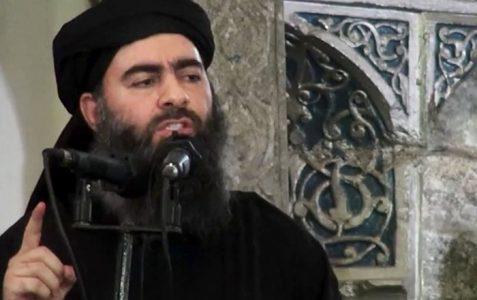
‘Driven into a corner’: The future of ISIS terrorist group after group’s leader al-Baghdadi is proclaimed dead
ISIS has confirmed the death of its leader Abu Bakr al-Baghdadi. These days after Baghdadi’s death, several experts discussed the future of the terrorist group after the elimination of its leader.
On Tuesday, a source in Iraq told Al Sumaria TV channel that the terrorist group issued a statement in which it reported al-Baghdadi’s death and said that the name of the “new Caliph” will be announced soon. The terrorists did not provide any details on the death of their leader.
On June 16, the Russian Defense Ministry reported that al-Baghdadi may have been killed in a Russian airstrike militant command post in the southern suburb of the city of Raqqa in late May. At the time, the information needed official confirmation, the ministry said.
There had already been several times when al-Baghdadi was reported dead. His death was reported in June and December 2016, April 2015 and November 2014. In April 2015, he was reported dead after an injury, and in October 2016, reports emerged that al-Baghdadi was poisoned. In January 2017, media reported that al-Baghdadi suffered heavy injuries in an airstrike.
In late June, a representative of Iran’s Islamic Revolutionary Guard said that the death of the ISIS mastermind was confirmed “through multiple channels,” adding that al-Baghdadi was “definitely dead.”
Irina Fedorova, senior research fellow at the Institute for Oriental Studies, the Russian Academy of Sciences, said that there is a 99 percent chance that al-Baghdadi is dead. The expert suggested that the death of its leader will significantly weaken the terrorist group.
“Al-Baghdadi was the spiritual leader of ISIS. He claimed that he was a direct descendant of Prophet Mohammed. He was an authority for those fighting in the ranks of ISIS and supporting its ideology. This is why it would be difficult to choose a new leader because this should be a man of authority,” Fedorova told.
The expert pointed to the fact that the death of the leader and the recent military defeats pave the way for a split within ISIS.
“The struggle for leadership may result in a division of ISIS. In its statement, the terrorist group called to prevent its ranks from dividing and stay united. This is a signal that there may be some cracks already in its leadership,” Fedorova said.
The expert pointed to the fact that the death of the leader and the recent military defeats pave the way for a split within ISIS.
“The struggle for leadership may result in a division of ISIS. In its statement, the terrorist group called to prevent its ranks from dividing and stay united. This is a signal that there may be some cracks already in its leadership,” Fedorova said.
At the same time, she underscored that such a scenario is likely to have negative consequences, particularly for the fight against terrorism in the region.
“If ISIS is divided the result will be numerous smaller extremist groups, each with its own leader. This is likely to complicate counterterrorism efforts in Syria and Iraq,” Fedorova concluded.
Alexander Mikhailov, a member of the Russian Council for Foreign Policy and Defense, suggested that al-Baghdadi’s death will reduce the cash flows Daesh receives.
“The death of the leader will affect the funding of ISIS. Probably, the problem is who will pay to ISIS. Usually, funding is arranged for a certain leader,” Mikhailov told Sputnik.
According to him, the death of al-Baghdadi was a “logical conclusion” to the long-lasting manhunt for the ISIS leader.
“Sooner or later he would be killed. At the same time, it cannot be ruled out that al-Baghdadi was killed in the Daesh internal struggle for power,” Mikhailov suggested.
He added that the death of a terrorist leader usually results in redistribution of power within the group but ISIS terrorists are likely to continue their activities.
“We know that there is no single center [within ISIS], there are several such centers. Despite such a serious blow, ISIS is likely to remain active,” Mikhailov pointed out.
At the same time, he underscored that ISIS has found itself “driven into a corner.”
“The fight against terrorism will intensify. It’s an open season on ISIS. Even if they move to another region, for example, Afghanistan, it will be the same,” he concluded.
Source: Sputnik





